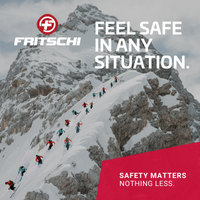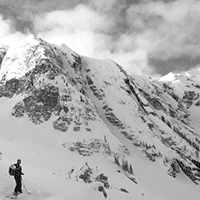He shoots...he GOALS!
SOAP BOX COMP?-I distinctly remember lying on my couch playing video games as a teenager, when my mom came over and yelled out 'Are you just going to lie there all day? Don't you have anything you want to do with your life…any goals for yourself?'. My mind instantly turned to that high school class we all had to take where we had to learn how to balance a budget, write a resume, and to make goals for our future careers. We had to write our goals and then make a fake plan to reach those goals. I always thought to myself then: 'Who needs to write down goals in order to motivate themselves to do something about it? How hokey is that. Just go out there and do it'. I did not move a muscle after my mom's lecture and just finished my level of (insert any name of a retro video game here).
I never really thought about it again until I finished my training in the field of rehabilitating injuries. As I started to work with difficult, life-changing injuries, I realized goals are extremely helpful to keep patients motivated towards improving their current situations. My previous ideas of the word 'goal' led me to think of things like: standing in front of the mirror for a Daily Affirmation speech, having a fridge cluttered with Post-it notes, or the resolutions we make at the beginning of a new year. Now, I think of goals as arbitrary yet always-evolving achievements we have in our thoughts while we strive for improvements. They help patients keep an analytical hold on their own progress. They are responsible themselves for analyzing the acheivements (or lack thereof) and force them to modify their goals based on self-analysis of their progression. It is that self-analysis and the inner focus that comes from this process that eventually motivates patients no matter what a health professional tells them their goals should be.
What becomes a barrier to goal-setting seems to be a desire not to fail and the negative feelings associated with that: guilt, disappointment, or even, depression. This is the most important feature of a goal: goals are always allowed to be modified depending on the circumstances given; there is no such thing as failure or success. This seems to be the key. Obviously we all can just say there are no failures because maybe the goals we set were too high or no successes because they were too low. That is why the only things I want to see in a patient in a rehabilitation setting are self-analysis of their progress and the creation/modification of new goals. This shows me they have the focus necessary to withstand the painful and difficult times that lie ahead in their rehab.
At the beginning of every ski year, I come up with 'X' number of days of skiing I would like to get and 'Y' number of vertical meters. I never place them on my bathroom mirror or fridge. These numbers are always higher than last year in an attempt to improve myself as a skier and a person. But what about the variables I cannot control: weather, injuries, etc… I never use these numbers as true motivation. For example, I could quit my job and ski seven days a week and get to 200+ days. But then my duality of work/play would not be the same. I could forgo long kilometers of flat walking to get to peaks I have never skied before to simply focus on lapping up common runs we have done for years just to get more vertical meters at the end of the year. These goals mean nothing. But the thought of the numbers of 'X' and 'Y' are great for motivation during bouts of bad weather or through niggling injuries. Sometimes they do get me up at 5 on ski days. They also help us persevere through a icy uptrack. What I love about trying to obtain these arbitrary numbers, is the constant evolution of the tactics required to achieve these goals and the analysis of the group dynamic of the day to truly make sure it stays fun and positive.
I started thinking about this term 'goal' one day when my brother sent me a picture of my dog he took last month while she was sitting at the top of Ecstasy. .jpg)
As I stared at the picture, I saw one of my yearly goals next to her right ear. A mountain I have always wanted to summit for no obvious reason than to see if my wife, dog and I could do it and keep a smile on our faces. Would it be a failure if I never make the summit? Would it be a success if I get to stand on its summit and ski the desired NE face run down? Neither. I relished the analysis of our current athletic condition leading up to it (could we manage it with our typical aches and pains?), the skill of the members of the group (anyone nervous?), what are possible routes and re-routes etc… I have had a picture of the desired face I wanted to ski on my screen saver since we toured to the area and saw the run in April 2013. .jpg)
Last week, we got to the summit. 20 km total hike. 1700m of vertical. Lots of trail breaking. Two really nice runs. Lunch at a sunny alpine frozen lake. Smiles abound at the truck. Went to work a full shift the next day with no soreness (always an added bonus). Does it matter the name of the mountain? No. Did it matter the main face run was not knee-deep in powder? No. Did it even matter I reached my goal. Except for a slight initial release of endorphins at the top…No. One of my favourite things about ski touring is the process of making the goals more than the achievement of those goals. So when we got to the top, without telling anyone about what my motivation was for summitting this mountain and the pictures that motivated me, I asked my friend to take a picture of my dog at the summit. 'Make sure to get some of the mountains behind her', I said with a wry smile knowing this new picture would be inspiration for a whole new set of goals and a new process of self-improvement.
Maybe I owe my mother a phone call and a big 'Thank you' for getting me off of that couch, eh?








